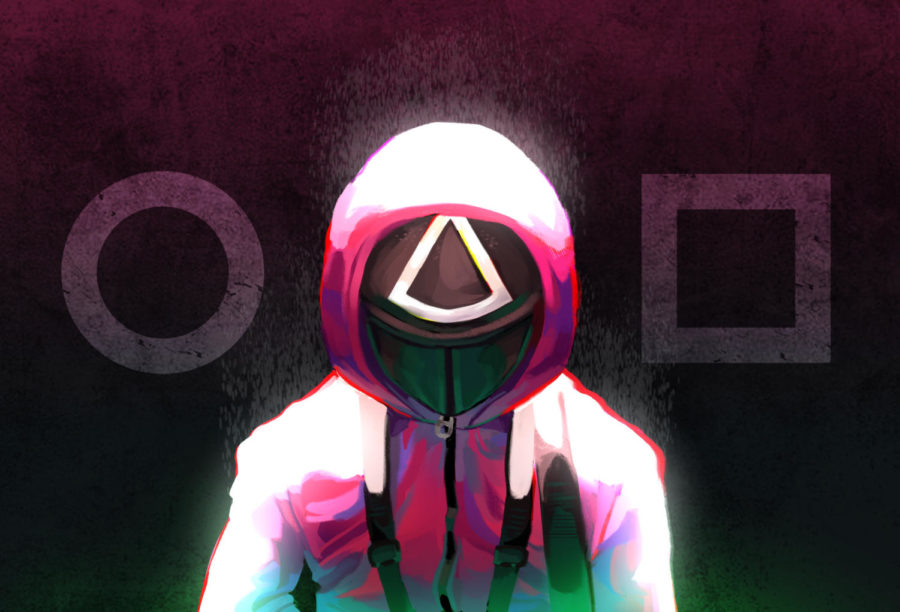Everyone is talking about ‘Squid Game.’ But is Netflix’s new huge hit really worth watching?
In September, people wouldn’t stop talking about Squid Game. But does it really live up to its hype?
October 29, 2021
Released on September 17, 2021, “Squid Game” has been watched by millions around the world. In less than a month, it has become the first Netflix series to top the daily charts of every country it’s available in. The series is full of suspense, game play, and trust, often followed by betrayal. The extremity of the survival setting allows viewers to share the tension with the players as they move through the deadly games, one by one, with all of their eyes set on the same goal.
Squid Game is a competition where players go through six different competitions, originating from traditional Korean childhood games. All players recruited to play the Squid Game have one thing in common: they are in extreme debt. The grand cash prize awaiting the final winner of the Squid Game motivates all of the players to give it their all, especially because anyone who loses a game is “eliminated” and instantly killed. Each game shocks viewers with its creativity and horror. They put the audience through an emotional rollercoaster as the game narrows down the 456 players to one winner, eliminating characters in the most unexpected ways.
This show intrigued me because as a South Korean, it was interesting to see how the producer implemented the seemingly innocent childhood games I knew into a deadly, bloody competition. Since these games all originated from children’s activities, they were simple to understand. The contrast between the simplicity of the games and the complexity of the system ho sting the competition clashed to create the overwhelming emotions of doubt, fear, and anxiety as hundreds of adults faced the moment between life and death, which was only determined by their own performances in the games.
There is controversy surrounding the film’s depiction of North Korea. One of the characters, Kang Sae-Byeok, is a young adult who escaped from North Korea with her little brother. During the rushed escape, Sae-Byeok’s father was shot to death while crossing the river and her mother was found in China, then forced back in North Korea. This reference made to North Korea was immediately recognized by the country itself, which released an article, stating that “[i]t is said that [Squid Game] makes people realize the sad reality of the beastly South Korean society in which human beings are driven into extreme competition and their humanity is being wiped out.” The country has released similar propaganda regarding “Parasite” as well, a South Korean movie that won six Academy awards in 2020. North Korea’s response to Squid Game has been mostly dismissed, as can be seen by the amazing speed at which Squid Game topped the charts internationally.
The main reason “Squid Game’s” popularity skyrocketed, however, is the endless creativity of this series. The show was invented ten years ago, and the thought process behind each individual scene and character was so complex. The characters, sets, and scenes were all so intricately created and formed, as well. For example, in a game on a playground, the playground is made to look larger than life to replicate how playgrounds felt as children. The director and art director considered the perspective of every character, including the players, the organizers, and the audience.
For those interested in the aspects of love, deceit, rage, and fear, consider watching “Squid Game”, which can be streamed on Netflix. Some may find the nine episode season not enough, but do not worry—the series is most likely to resume in a second season due to its booming popularity. Every scene is planned so intricately that every second is worth watching. Friendships and alliances quickly form, but are just as easily broken as intense fear turns even the closest friends into mortal enemies when their lives are on the line; this reveals the benefits and flaws of human relationships, as well as the power of the fear of death.



